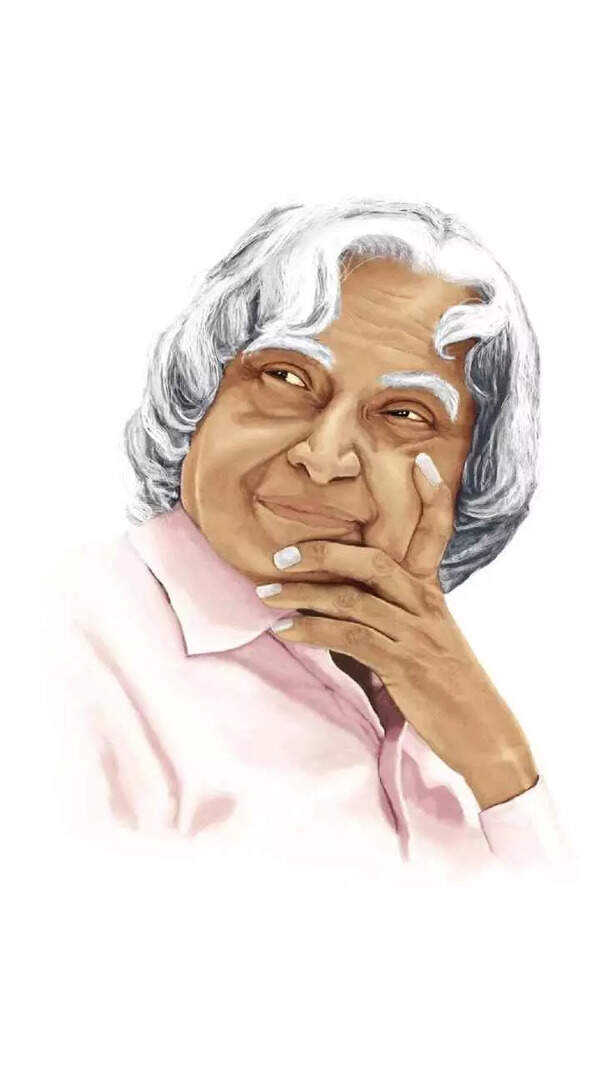- News
- entertainment
- hindi
- bollywood
- Gautam Ghosh picks Ray film for sequel
Trending
This story is from December 15, 2002
Gautam Ghosh picks Ray film for sequel
KOLKATA: Having generated much heat over the selection procedure at last year's national awards, eminent Bengali director Gautam Ghosh has embarked upon another gutsy act - attempting a sequel to a 1969 movie by legendary film maker Satyajit Ray.

<div class="section1"><div class="Normal">KOLKATA: Having generated much heat over the selection procedure at last year''s national awards, eminent Bengali director Gautam Ghosh has embarked upon another gutsy act - attempting a sequel to a 1969 movie by legendary film maker Satyajit Ray.<br />Ghosh, who bagged a national award for his last film <span style="" font-style:="" italic="">Dekha</span>, has almost completed shooting his film <span style="" font-style:="" italic="">Abar Aranye</span> (Again In the Forest), taking off from where Ray''s critically acclaimed <span style="" font-style:="" italic="">Aranyer Din Ratri</span> (Days and Nights in the Forest) left off.<br />The director is not perturbed in the least by the inevitable comparison which his film, starring Bollywood''s talented actress Tabu, is expected to meet when released.<br />"It is not a matter of guts. I have consciously chosen to work on a sequel to Ray''s film... can''t help being compared. Even a book from which a movie is made is compared to the literary work and vice versa," Ghosh says.<br />The story itself is comparative though. <br /><span style="" font-style:="" italic="">Aranyer Din Ratre</span> was a story of a set of ''nowhere people'' who lived in nothingness as Ray tried to understand the new generation on a journey to a forest.<br />Picking up the same set of characters from Ray''s film, who are older now, Ghosh tells the story of another journey into another forest with a group of bubbly youngsters thrown in to suggest the passage of time.<br />Ask him if he is aiming at the awards yet again?<br />"Enough of national awards. My film is a tribute to a great master," he retorts. Dubbing his film an "experiment in new cinema", Ghosh has put together an impressive star cast with veterans Soumitra Chatterjee, Sharmila Tagore and Subhendu Chatterjee, who acted in the Ray film, along with Rupa Ganguly, Jishu Sengupta, Rajatava Dutta, Chaiti Ghosal and Saswata Chatterjee as the younger lot.<br />The film, he says would, "stand on its own" as it was independent of the theme portrayed by Ray.<br />"This is a story of new challenges, the new problems of today where time has been used as a metaphor for change. Nothing is permanent but some human emotions never change, they are rooted in the matrix," Ghosh, who like Ray has handled all departments of the film - story, screenplay, music, camera and direction - on his own.<br />But why did he chose a new location and not the original Palamau forests?<br />"This is an independent film and I did not want to repeat the backdrop. And frankly, I am very fond of North Bengal with its lush tea estates," he says.<br />Actress Sharmila Tagore, incidentally a Ray discovery, is already raving about the film as one of her "dream roles".<br />"While working for Ray''s film, we never knew we would be doing a sequel...it is like a story being told again after so many years. We were also joking if Tabu would ever do a sequel of this movie playing an old lady some day!" she says. <br />Tagore, who played a newly-married woman on a trip to the forest with her husband and his family in Ray''s film, would play the same character revisiting a forest after a gap of three decades.<br />"This film brings back so many memories of Satyajit Ray. I will certainly miss Rabi Ghosh, one of the stars in his movie, who is no more. In more ways than one, this film will show that times have changed but the ways of the heart are still the same," she says.<br />The romance and thrill of the new journey with old people who have their own families today was what appealed to the film-maker.<br />"What would these characters do if they still existed today? How would their worlds be? Would they think the same way as they did when bubbling with youthful energy or have they tempered down with time? All these things pestered me into making this film," Ghosh says.<br />Co-produced by the Rainbow and T Sarkar houses, <span style="" font-style:="" italic="">Abar Aranye</span> has been slated for an April 2003 release. </div> </div>
I have consciously chosen to work on a sequel to Ray''s film... can''t help being compared. Even a book from which a movie is made is compared to the literary work and vice versa," Ghosh says.<br />The story itself is comparative though. <br /><span style="" font-style:="" italic="">Aranyer Din Ratre</span> was a story of a set of ''nowhere people'' who lived in nothingness as Ray tried to understand the new generation on a journey to a forest.<br />Picking up the same set of characters from Ray''s film, who are older now, Ghosh tells the story of another journey into another forest with a group of bubbly youngsters thrown in to suggest the passage of time.<br />Ask him if he is aiming at the awards yet again?<br />"Enough of national awards. My film is a tribute to a great master," he retorts. Dubbing his film an "experiment in new cinema", Ghosh has put together an impressive star cast with veterans Soumitra Chatterjee, Sharmila Tagore and Subhendu Chatterjee, who acted in the Ray film, along with Rupa Ganguly, Jishu Sengupta, Rajatava Dutta, Chaiti Ghosal and Saswata Chatterjee as the younger lot.<br />The film, he says would, "stand on its own" as it was independent of the theme portrayed by Ray.<br />"This is a story of new challenges, the new problems of today where time has been used as a metaphor for change. Nothing is permanent but some human emotions never change, they are rooted in the matrix," Ghosh, who like Ray has handled all departments of the film - story, screenplay, music, camera and direction - on his own.<br />But why did he chose a new location and not the original Palamau forests?<br />"This is an independent film and I did not want to repeat the backdrop. And frankly, I am very fond of North Bengal with its lush tea estates," he says.<br />Actress Sharmila Tagore, incidentally a Ray discovery, is already raving about the film as one of her "dream roles".<br />"While working for Ray''s film, we never knew we would be doing a sequel...it is like a story being told again after so many years. We were also joking if Tabu would ever do a sequel of this movie playing an old lady some day!" she says. <br />Tagore, who played a newly-married woman on a trip to the forest with her husband and his family in Ray''s film, would play the same character revisiting a forest after a gap of three decades.<br />"This film brings back so many memories of Satyajit Ray. I will certainly miss Rabi Ghosh, one of the stars in his movie, who is no more. In more ways than one, this film will show that times have changed but the ways of the heart are still the same," she says.<br />The romance and thrill of the new journey with old people who have their own families today was what appealed to the film-maker.<br />"What would these characters do if they still existed today? How would their worlds be? Would they think the same way as they did when bubbling with youthful energy or have they tempered down with time? All these things pestered me into making this film," Ghosh says.<br />Co-produced by the Rainbow and T Sarkar houses, <span style="" font-style:="" italic="">Abar Aranye</span> has been slated for an April 2003 release. </div> </div>

End of Article
FOLLOW US ON SOCIAL MEDIA







